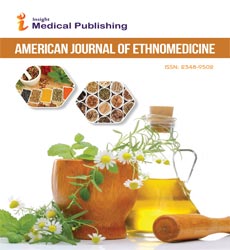ISSN : 2348-9502
American Journal of Ethnomedicine
Reach Us
 +447897072958
+447897072958
PPAR Alpha -Selective Antagonist GW6471 Inhibits Cell Growth in Breast Cancer Stem Cells
Visit for more related articles at American Journal of Ethnomedicine
Abstract
Triple-negative breast cancer is the most aggressive among breast cancers, showing the worst prognosis and the highest aggressivity. Recently, it has been shown that cancer stem cells play a crucial role in tumor formation, progression, metastasis, recurrence, and drug resistance in this type of tumor. Thus, the presence of cancer stem cells may justify the failure of conventional cancer therapies to eradicate breast cancer completely. For this reason, targeting CSCs may represent a favorable approach for breast cancer treatment, especially in the triple-negative form. Peroxisome proliferator-activated receptors (PPARs) are steroid hormone receptors that can act as tumor suppressors or inducers in cancers depending on cancer type and/or specific tumor microenvironment. Massive PPARα activation is related to tumor growth progression in different cancers, including triple-negative breast cancer. Consequently, this pathway can be targeted by treatments against tumorigenesis, particularly of breast cancers. To this purpose, we isolated and characterized breast cancer stem cells for the stemness markers and PPARs from a triple-negative breast cancer cell line, MDA-MB-231 to produce mammospheres. At this point mammospheres were treated with the potent specific PPARα antagonist, GW6471. Then, glucose and lipid metabolism and invasiveness of mammospheres were analyzed. Interestingly, we observed that GW6471 was able to reduce cancer stem cell viability, proliferation ability and spheroid formation, leading to apoptosis and metabolic alterations. Overall, our results obtained suggest the possible use of GW6471 as a potent adjuvant for gold standard therapies for triple-negative breast cancers.
Select your language of interest to view the total content in your interested language
Open Access Journals
- Aquaculture & Veterinary Science
- Chemistry & Chemical Sciences
- Clinical Sciences
- Engineering
- General Science
- Genetics & Molecular Biology
- Health Care & Nursing
- Immunology & Microbiology
- Materials Science
- Mathematics & Physics
- Medical Sciences
- Neurology & Psychiatry
- Oncology & Cancer Science
- Pharmaceutical Sciences
